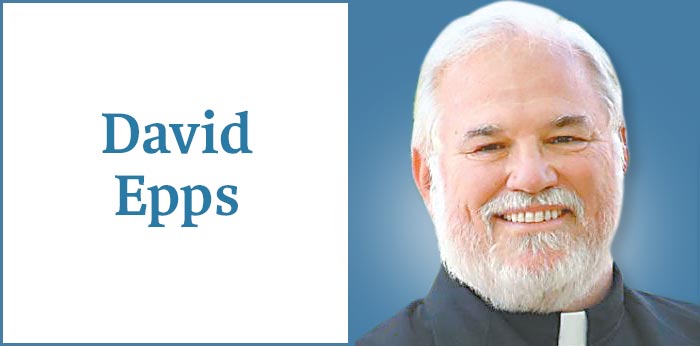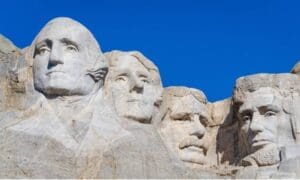On March 15, 2019, I traveled to Bel Air, Maryland, to participate in the consecration of Robert Scott Northwood as a bishop in Christ’s “One, Holy, Catholic, and Apostolic Church.”
It’s always an impressive and humbling affair, and this one was no exception. I have seen several consecrations in the United States and in Kenya and Uganda. All were filled with hope, promise, and weightiness. It had been 11 years and four months since my own consecration.
During the consecration, the candidate is examined publicly and is asked to make a number of vows. As I watched while this happened with Bishop Rob, I thought of my own questions and vows, since I took the same vows and answered the same questions over 11 years ago.
“Will you be loyal to the doctrine, discipline, and worship of Christ as this Church has received them? And will you, in according to the canons of this Church, obey those who have authority over you and your work?” I said that I would.
I also said that I believed the Holy Scriptures of the Old and New Testaments to be the Word of God and to contain all things necessary to salvation. I vowed to conform to the “doctrine, discipline, and worship” of the Church I served.
Both Bishop Northwood and I, and all the bishops from across North America, Africa, and Pakistan who were present, have vowed to be faithful and constant in proclaiming the Gospel of Christ, to maintain the faith “entire and incorrupt as handed down by the apostles,” to build up the Church, to remain united with the bishops and obedient to the Patriarch, to be a devoted father to the people of God and to guide people in the way of salvation.
We resolved to show kindness and compassion in the name of the Lord to strangers, to the poor, and to all in need. We vowed to seek out the sheep who stray and to gather them back into the fold of Christ, to pattern our lives (and that of our families) in accordance with the teachings of Christ, and to be a “wholesome example” to God’s people. We vowed to pray for the people of God and to do nothing that would bring reproach on ourselves, our office, our ministry, the church, and upon Christ.
There were also understood duties and responsibilities connected with our call and ministry: to pray the Daily Office, to be students of the Scriptures, to be defenders of the Faith, to hear confessions, to celebrate Holy Eucharist, to preach God’s word, to comfort and console the bereaved, the dying, and the brokenhearted.
Of course, there are the meetings we are expected to attend, to lead, by example, our churches in our diocese in giving. Then there is the pressure of all the churches, not just your own, that weigh upon one. And the relationships with all the clergy of the diocese as a father and pastor. There are the soaring joys of ordaining a man to the diaconate or the priesthood and the crushing sadness of deposing (defrocking) one who has broken or forsaken his vows and responsibilities.
For my part, I remembered that I was, in a sense, an “accidental bishop.” My bishop, John William Holloway, suffered a stroke at the age of 53. He was totally disabled and bed-ridden. Seven years after the stroke, he would pass way. Had he remained healthy, I would still be a parish priest and happy in the role.
But, like the NCO who receives a battlefield commission when his officer is fallen in combat, I was selected to be a bishop. During my consecration, I laid on the floor and a funeral pall was placed over me as a symbol of dying to self and to selfish ambition. My one prayer under that pall was, “O God, please do not let me bring reproach on You, Your Church, or this office. Please take my life before that happens.” I meant it then and I mean it now.
During Bishop Northwood’s consecration, the Patriarch, Archbishop Craig Bates of New York, read an exhortation to him. In part, it said to “strive to serve rather than rule … proclaim the message whether it is welcome or unwelcome … correct error with unfailing patience and teaching … be mindful of the good Shepherd who … did not hesitate to lay down His life for them (the sheep) … love all those whom God places in your care … love the priests and deacons … love the poor and infirm, strangers and the homeless … never relax your concern for those who do not yet belong to the one fold of Christ; they, too, are commended to you in the Lord.” There was more, of course, much more. I had heard it before, 11 years ago.
Eleven years ago, I had no idea what I was doing as a bishop. That feeling has not changed much. The bishops are said to be the “successors of the apostles.” The night before my consecration, I looked at an icon of the 12 apostles in our sanctuary and said out loud, “You have to be kidding me!” I felt unworthy and inadequate then and I feel even more so now. The reason I feel that way is because it’s the truth.
It is true that, “God chooses the foolish things of this world to confound the wise.” It is also true that His “strength is made perfect in our weakness.” So, I limp along as a wounded and imperfect warrior seeking to do the will of the Perfect One.
The consecration of Bishop Northwood forced me to look at and re-evaluate my own life and ministry and to renew my own vows. It reminded me of the high calling and of my own continuing inadequacy and unworthiness.
I was also reminded that the measure of success is not found in things material and measurable but in continuing faithfulness. It is the faithful servant, whomever that might be, that receives the highest praise from Christ himself. Whether bishop, priest, deacon, or believer, if we can receive that, it will be reward enough.
[David Epps is the pastor of The Cathedral of Christ the King (www.ctk.life). He has been an opinion columnist for The Citizen since 1996, He may be contacted at [email protected].]













Leave a Comment
You must be logged in to post a comment.